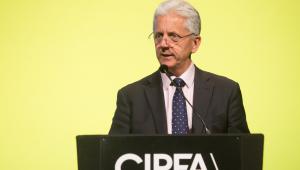Britain is experiencing an “astonishing period” for social injustice and this must be addressed through regional economic growth, according to political economist Will Hutton.
Speaking at the Institute for Economic Development’s annual conference on 6 December, Hutton said the UK was one of the largest economies in the world but this is not reflected in the social mobility “cold spots” found throughout the UK.
He noted that seven out of 10 of the poorest regions in Northern Europe are in England while the eighth and ninth poorest are in Wales and Northern Ireland respectively.
While areas like London benefit from large-scale investment this is not the case for other parts of the country, Hutton claimed.
Citing the example of London’s transport network Hutton said: “None of that kind of investment has gone into the rest of the country”.
Recent research from the Institute of Public Policy Research think-tank has found that transport spending in London is double that of northern England.
Hutton argued this economic disparity is affecting the health of people in the poorest areas of the country.
“Public Health England say that between 2014 and 2016 life expectancy fell for the first time in around 100 years in multiple areas of the country,” he said.
Hutton told delegates: “The challenge is how do you get the case of London to apply to the rest of the country? We need to have better answers than we have provided so far. We need a constitutional settlement that really empowers the localities.”
He proposed the creation of more public benefit companies that include smaller towns in their supply chains.
Joanna Rowelle, director of integrated city planning at Arup, the engineering and design firm, told the conference that the government was not doing enough to support local economic growth.
She said the “£675m high street fund announced in the autumn Budget was not enough money”.
Rowelle suggested more areas produce inclusive growth strategies but insisted: “It can’t just sit at the door of local authorities. We have to find strong and robust private sector partners.”











